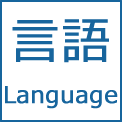ホーム > 長崎大学について > 学長メッセージ > 河野学長 > 令和元年度 長崎大学卒業式学長式辞
令和元年度 長崎大学卒業式学長式辞
2020年03月25日
| 令和2年3月25日 長崎大学卒業式学長式辞 桜は不思議な花で,出会いと別れのすれ違う刹那に咲いて,新しい世界が光に満ちたことを期待させてくれます。皆さんはまた,時代の転換点の象徴である新元号のもとで,極めて印象深く社会へ第一歩を歩み出すことになります。さらに,今年は新型コロナウイルス感染症の流行により,例年と違った緊張感の中で本日の卒業式を迎えていることと思います。 令和元年度卒業生の皆さん,大学院修士課程修了者の皆さん,卒業そして修了誠におめでとう御座います。長崎大学で4年間または6年間学び,これから社会に巣立っていく皆さん,また修士課程や博士課程に進学される皆さんも含め,希望と緊張の中に,身震いをしながらも今日の日を迎えていることと思います。 今日まで卒業生,修了生を見守り続けてこられたご家族の皆様にも心よりお慶び申し上げます。全ての教職員および在学生を代表してお祝いの言葉を申し上げます。 皆さん,まず胸に手を当てて,長崎大学での学びを少し思い返してみて下さい。入学した時のことを少しでも思い出せたでしょうか?何を学ぼうと考えて,どんな希望を持っていたでしょうか? 次に学生生活に思いをはせてください。4年間または6年間で初心をどう育て,どんな回り道をし,何に失敗し,また何を自分のものとしたか,それぞれ自分の中で思い返してみて下さい。卒業後の第1歩はここから始まります。重要なことは自分の理想,希望を目指す中で,今までのことで何がうまくいかず,それを克服するため今後何をさらに努力し,学んでいくか,です。失敗や不十分な努力を後悔する必要はありません。皆さんには,社会人として50年以上の十分な時間があります。反省と挑戦は次の成功の可能性を必ず高めてくれます。先輩として私が断言できることは,まずは卒業後10年間,今までの経験を成功に生かすために,精一杯学び続けることです。 私自身の経験を少しだけお話したいと思います。私は,長崎県の波佐見という人口1万人ほどの田舎に生まれ育ちました。祖父が田舎医師として地域に根ざした医療を行っていましたが,1代途切れたため,孫にあたる私が波佐見で地域医療を期待され長崎大学医学部に入り,卒業したのです。最終的にどんな患者さんでも診れる内科の道を選びました。大学病院は今の働き方改革と真逆の厳しい教育が待っており,何度も挫けそうになりました。大学病院を辞めて,楽な病院に移りたいと心から願っていたほどです。そんな時に先輩から「河野君。卒業後10年はしっかり勉強しないと,患者さんや同僚から頼られる医師にはなれないよ。」と諭されました。10年が経ち,もう修行も終わったので,そろそろ田舎に帰って開業の準備をしようと思っていた頃,大学病院の教員として戻るようにと声がかかりました。私はこのときほど自分の進路を悩んだことはありません。その時に相談した尊敬する先輩教員から「駄目だったらいつでも辞められるし,開業はいつでもできるから,良い医師になるために役立つ経験になるので,大学に戻ってくるように。」と言われ,確かにそうかなあと半分納得し,戻ったまま,今まで35年間大学で働くことになってしまいました。私の人生はこのように能動的な選択ではなく,極めて受動的な選択でした。ただ,今になって考えてみれば,開業医では経験できない別の次元の世の中で役立つ仕事ができる立場にあるのではと思っています。萩本欽一さんが「人生っていうのは自分が何になりたいかじゃない,誰に必要とされているかなんだ。」,「何かを決めるときに,それを損得や好き嫌いとかではなく,その時,その時の運命のような『ご縁』を大切にした時に,運はたまってくる。つまり,目の前にやって来た大事なご縁をないがしろにせず,ただひたすら精一杯やった時に。」,「ところが,鋭い人や頭のいい理屈に長けた人はこれがなかなかできない。できるのは,損得に鈍い少しボーっとしている人であり,自分のことより先に人の喜びを考える人。」と言っています。 勿論,自分のやりたいこと,目標を明確に持って突き進む人生も極めて大切であり,それを否定するものではありません。只,人生も多様であり,ひとそれぞれに合った選択枝があると思います。 卒業後からが,長い人生の始まりです。最も大切な時間はあっという間に過ぎ去ります。最近では人生100年時代と言われています。まだ,80年もあるというのんびりした考え方もあるでしょう。しかし,生きがいのある人生を送るためには,どうすべきでしょうか。様々な考えを持つ皆さんは多様な個性そのものであり,自分の生き方を追求するなかで,生きる喜びに繋がる共通のものはなんでしょうか。是非,しっかり考えてみて下さい。私の考えを皆さんに押しつけるものではありませんが,一つの参考として聞いて下さい。それは誰かに必要とされる,すなわち社会に役立つことに一生懸命になることではないでしょうか。後から振り返って取り返せないものは時間です。こればかりは先達の意見を参考にしなければ損します。まずは10年目的に向かって,目の前の目標を一つずつ解決しながら,とにかく突っ走ってください。 長崎大学は,今年から「プラネタリーヘルス(地球の健康)」を目指した大学に変化します。私達の住む地球の環境,すなわち地球の健康は危機的な状況に陥りつつあるのではないかと感じています。ヒトに例えれば,病気を発症し,治療が必要な状況だと思います。地球の健康を脅かしているのは何でしょうか。グローバルな視点では,地球温暖化などの環境問題,宗教対立や国際紛争などの政治問題,核兵器などの問題も入るでしょう。ローカルな視点では,人口減少や急激な高齢化,医療などの社会保障,経済格差や教育問題などがあり,複雑に絡み合い,直接あるいは間接的に地球の健康を害しています。長崎大学は全10学部,7研究科を挙げて,プラネタリーヘルス(地球の健康)を意識した教育および研究,社会貢献を目指し,横断的な活動へとつなげ,将来的に地域に広げ,企業や行政と連携した活動へと展開してゆきます。このように社会への貢献こそが大学の存在意義であり,教職員や学生のやりがいに繋がると確信しています。 皆さんは,一人で生きていくのは極めて困難な世界に暮らしています。しかし人は社会を形成した時点で,一人で生きることを選択しなかったということですから,一人で生きることは元来困難なのです。まずは自分のために頑張ってください。するとその先で家族や,友人のため,そして会社のため,地域のため,人類のため,地球のため,と世界を拡げていけるようになります。これから生きて行く社会は,今後大きく変容していくと予想されています。そのような世界で生きがいを持って生きて行くために,是非とも社会への貢献を考えながら,今後ご活躍下さい。 長崎大学は皆さんを校友として一生繋がりを持ち,支え続け,また皆さんから支えられて,社会に役立つ大学として生き続けます。長崎大学を卒業していく皆さんにとって誇れる大学となることを約束いたします。長崎を離れる皆さんも4年間または6年間学んだ本学を誇りとして,いつでも学び直しに,また懐かしい恩師との語らいや後輩の激励に立ち寄って下さい。長崎の港,山,空が皆さんを暖かく迎えるでしょう。これからの皆様の豊かな活躍を祈念し,私の式辞と致します。本日はご卒業誠におめでとうございます。 |
| 長崎大学長 河野 茂 |
Graduation Ceremony Speech by the President of Nagasaki University (on March 25, 2020) Cherry blossoms are wondrous—the flowers are in bloom for just a brief moment in the season for meeting and parting, arousing expectations that a bright new world is coming. In this beautiful season, you are taking the first step into the real world, particularly impressively, as the first graduates in the new Japanese imperial era, which represents a turning point of the times. Today, this graduation ceremony is being held in an unusually tense atmosphere in the wake of the novel coronavirus epidemic. It is my great pleasure to congratulate all of you who are receiving your diplomas from Nagasaki University after completing the undergraduate or master’s courses in academic year 2019, or the first year of the Reiwa era. Now that you have studied for four or six years at the university, you are entering the world of work or advancing into master’s or doctoral courses. Whichever path you follow, I suppose that all of you are attending this ceremony trembling with excitement, and feeling both hopeful and nervous. I would also like to share this joy with the parents and others who have watched over and supported these students up to now. Please let me express my sincere congratulations to them, on behalf of all the faculty and staff members, and current students of the university. Graduating students, please reflect on your days of study at Nagasaki University. Can you remember when you enrolled at the university? What did you want to study and what did you hope for at that time? Next, please think of your campus life in Nagasaki University. Over the past four or six years, how did you try to accomplish your original intention, what kinds of detours did you take on the way to your destination, what kinds of failures did you experience, and what did you learn from your campus life? Reflecting on these matters is the first step after graduation. It is important for you to figure out what missteps you took in attempting to realize your ideals and hopes, and to understand what you should strive for and what you should learn more about to overcome any problem. You don’t have to feel regret for your past failures or lack of effort. You have enough time—as a full-fledged member of society, you can continue to develop henceforth for more than 50 years. There is no doubt that you can enhance your chance of success by taking on new challenges based on reflection of the past. As your senior, I can say with absolute certainty that you should continue to study hard at least ten years after graduation, in order to make effective use of the experience you have accumulated here to achieve future success. Here, let me briefly talk about my own experiences. I was born and brought up in Hasami, a country town with a population of about 10,000 in Nagasaki Prefecture. My grandfather was a doctor engaged in community-based medical activities. Since none of his children became doctors, as his grandson, I myself was expected to be a doctor and to work as a local practitioner in Hasami. That’s why I enrolled in and graduated from the School of Medicine at Nagasaki University. I wished to eventually become a doctor of internal medicine, someone who can treat various patients. When I began to work at the university hospital, I was discouraged many times, since novice doctors must go through hard training in a very harsh working environment that was diametrically opposite to what we have today after the reform of working practices. It was so hard that I seriously wanted to quit the university hospital and move to a less demanding hospital. At that time, however, a senior doctor admonished me, saying, “Mr. Kohno, you must continue to study hard for at least ten years even after graduating from the university. If not, you cannot be a doctor on whom patients and colleagues can rely.” I was persuaded and continued working After ten years passed, now that my training period was over, I thought that it was about time to return to my hometown to begin working as a local practitioner. Coincidentally, however, I was invited to come back to the university hospital as a faculty member. I had to decide which career path I should choose. It was the most difficult choice I had ever faced in my life. So I consulted a senior faculty member whom I respected. He said, “You can quit the faculty position if you ever find it difficult to continue with the work. You can also become a medical practitioner any time. I recommend that you return to the university hospital, since working as faculty will be a valuable experience to help you become a good doctor.” Feeling that this might be true, I was half convinced by his advice, and decided to return to the university hospital. Since then, I have continued to work at the university for 35 years. As I mentioned, I chose the course in my life very passively rather than actively. In retrospect, however, the faculty position has enabled me to work for the benefit of society in a different dimension than the one I would have experienced if I had been a practitioner. I would like to introduce some remarks made by Mr. Kinichi Hagimoto, a famous Japanese comedian. “What is important in life is not what you want to be, but who needs you.” “When you make a certain decision, you should do it apart from a profit-and-loss calculation and regardless of likes and dislikes. Just trust in fate and you will never make the wrong decision. In other words, fortune comes to you when you are working very hard, without ignoring the valuable connection in front of you.” “However, this would be difficult for those who are very smart, clever and theoretical. Rather, this would be easier for those who are less smart and not good at calculating profit and loss, but who can think first of other’s happiness before their own.” Needless to say, it is also extremely important to proactively make your own way in life by setting a clear-cut objective, in order to realize what you want to do. I don’t mean to belittle that way of life. I just want to say that there are diverse ways of life, and individuals can make a choice that is fit for them personally, from among different alternatives. After graduating from the university, your long journey of adult life will begin. The most precious time flies by. It is said that we have now entered the age of the 100-year life. Some of you may have an optimistic view: “I can live for another 80 years.” However, what should we do in order to live a fulfilling life? You all have different ideas and diverse personalities. . While pursuing your diverse ways of life, you should share something in common that leads to the joy of living. Graduating students, I strongly hope that you will deeply think about what it is. Although I have no intention of pressing my own ideas on you, please listen to me for reference. I believe that an answer to the said question is making a studious effort to be needed by someone else—that is, to contribute to society. Once you have lost time you can never get it back. I therefore think you had better draw on ideas from your seniors. I recommend that you make an all-out effort over the next ten years, while accomplishing your respective goals at hand one by one. Beginning from this year, Nagasaki University will transform itself into a university striving for “Planetary Health.” I feel that the environment of our planet Earth is falling into a critical condition—in other words, our planetary health is jeopardized. If likened to a human, the Earth resembles a person who has fallen ill and is in need of treatment. Then, what are the threats to planetary health? From a global perspective, these threats include global warming and other environmental problems, political issues such as religious and international conflicts, and the nuclear weapons issue. From a local perspective, I can cite population decrease, the rapid aging of society, medical care and other social security issues, economic disparities, and educational problems. These threats are complicatedly interconnected with one another, adversely affecting planetary health, either directly or indirectly. Nagasaki University will make concerted efforts through its ten undergraduate faculties/schools and seven graduate schools to promote education and research as well as making a social contribution focusing on planetary health, and develop them into cross-sectional initiatives. These initiatives will then be expanded across the region, and also deployed as collaborative activities involving companies and government in the future. I firmly believe that such social contribution is exactly the raison d’etre of the university, which will motivate its faculty and staff members and students to take on challenges. You are living in a world where it is extremely difficult to live alone. In the first place, however, when human beings formed societies, they had already selected not to live alone. This implies the inherent difficulty of living alone. First, you must do your best for yourself. Then, you can broaden your horizons, to think and act for the benefit of your families, friends, companies, regions, and then humanity and the Earth as a whole. It is expected that our future society will undergo a significant transformation. To live a fulfilling life in such a changing society, I strongly hope that you will play an important role while considering how you can better contribute to society. As your alma mater, Nagasaki University will maintain a bond with you and support you throughout your life, and continue to develop as a university that serves society by obtaining your support. Nagasaki University gives a pledge to graduating students that it will be an institute that is always a source of pride for them. Now that you have completed your studies, some of you may leave Nagasaki. Even so, please come back any time to the university, to study again, talk with your mentors and encourage younger students. The port, mountains and skies of Nagasaki will warmly greet you. I would like to express my best wishes for your prosperity and success in the future. In closing, may I reiterate to you all my warmest congratulations. |
| Shigeru Kohno President of Nagasaki University |





































